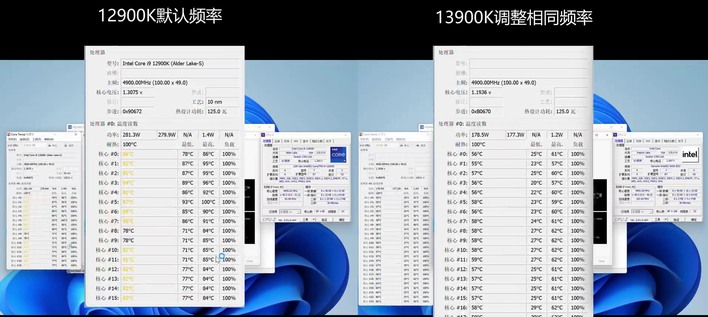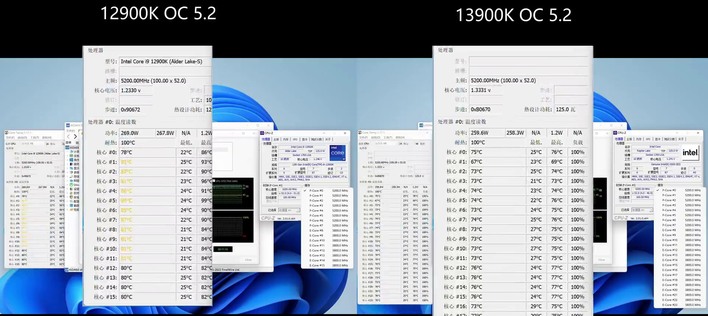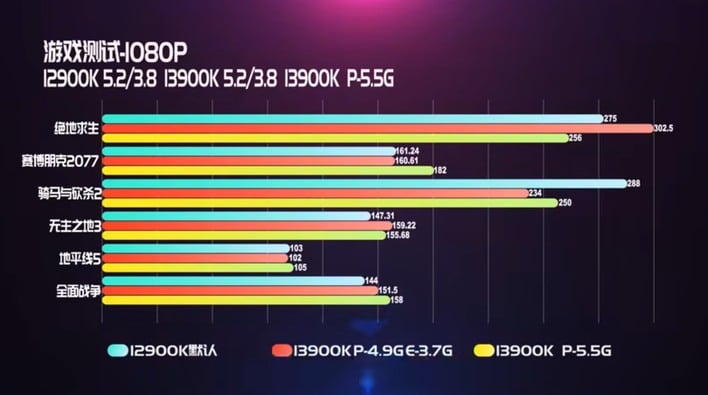Raptor Lake Core i9-13900K Leak Shows Intel’s Benchmark Monster At 5.2GHz
This disparity more or less balances out when both chips are overclocked to 5.2 GHz across their P-cores, although the Raptor Lake part is still drawing less power per core—and staying cooler while doing it, too. This could be attributable to the AIDA64 stress test not operating properly on the pre-release processor, because the next test gives us the kind of result we're expecting:
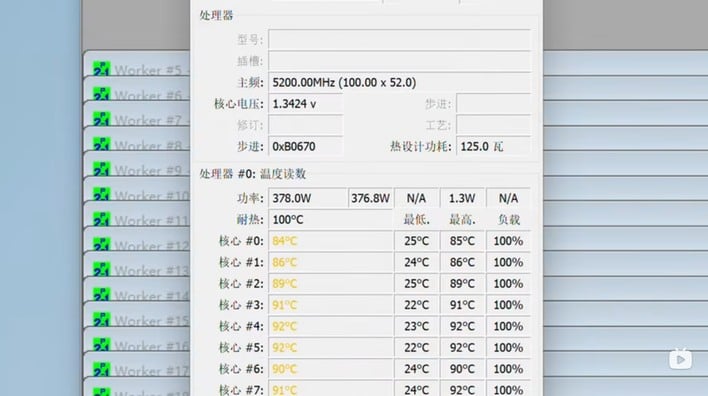
Indeed, Prime95 pushes the Raptor Lake chip to its limits, with an overall power draw of 377.9 watts at 1.34 volts. Even under a humongous 360-mm radiator, some the CPU's cores are pushing 92°C.
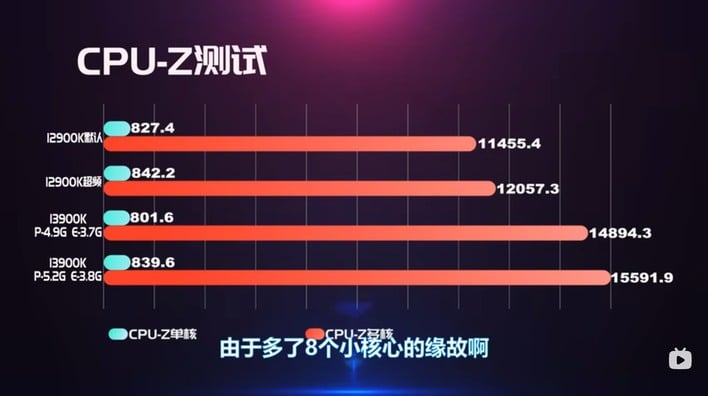
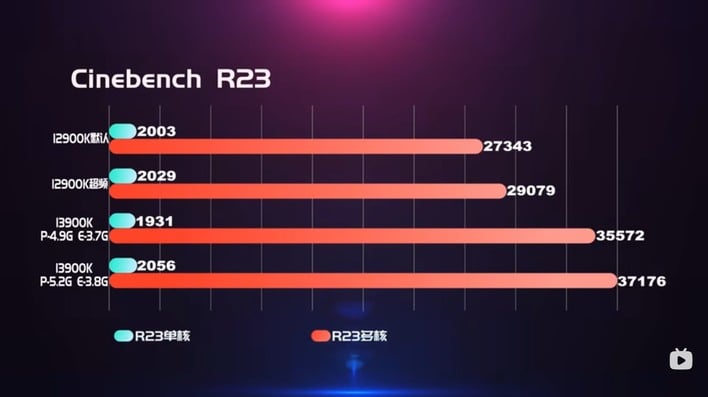
EJ Hardware tested the chip under CPU-Z and Cinebench, of course, and came away with unsurprising results virtually identical single-threaded performance to the 12th-gen part, and drastically improved multi-threaded performance thanks to its extra CPU cores. We do see slightly lower single-threaded performance when the CPU is limited to 4.9 GHz, but that's as expected.
Finally, the leakers tested some games. There are clearly some anomalies here; we suspect that some of the stranger results—like the Core i9-13900K losing in Cyberpunk 2077—are down to issues of EJ Hardware's early CPU, early firmware, or possibly some idiosyncrasy that resulted from the overclocking method used.
Raptor Lake is a relatively modest change from Alder Lake, with the biggest modification in the P-cores being the increase in L2 cache capacity to 2MB. Alder Lake is already very fast, so it will be interesting to see if the small tweaks made to Raptor Cove along with a mountain of extra clock rate will be enough to keep Intel's latest ahead of AMD's finest.

